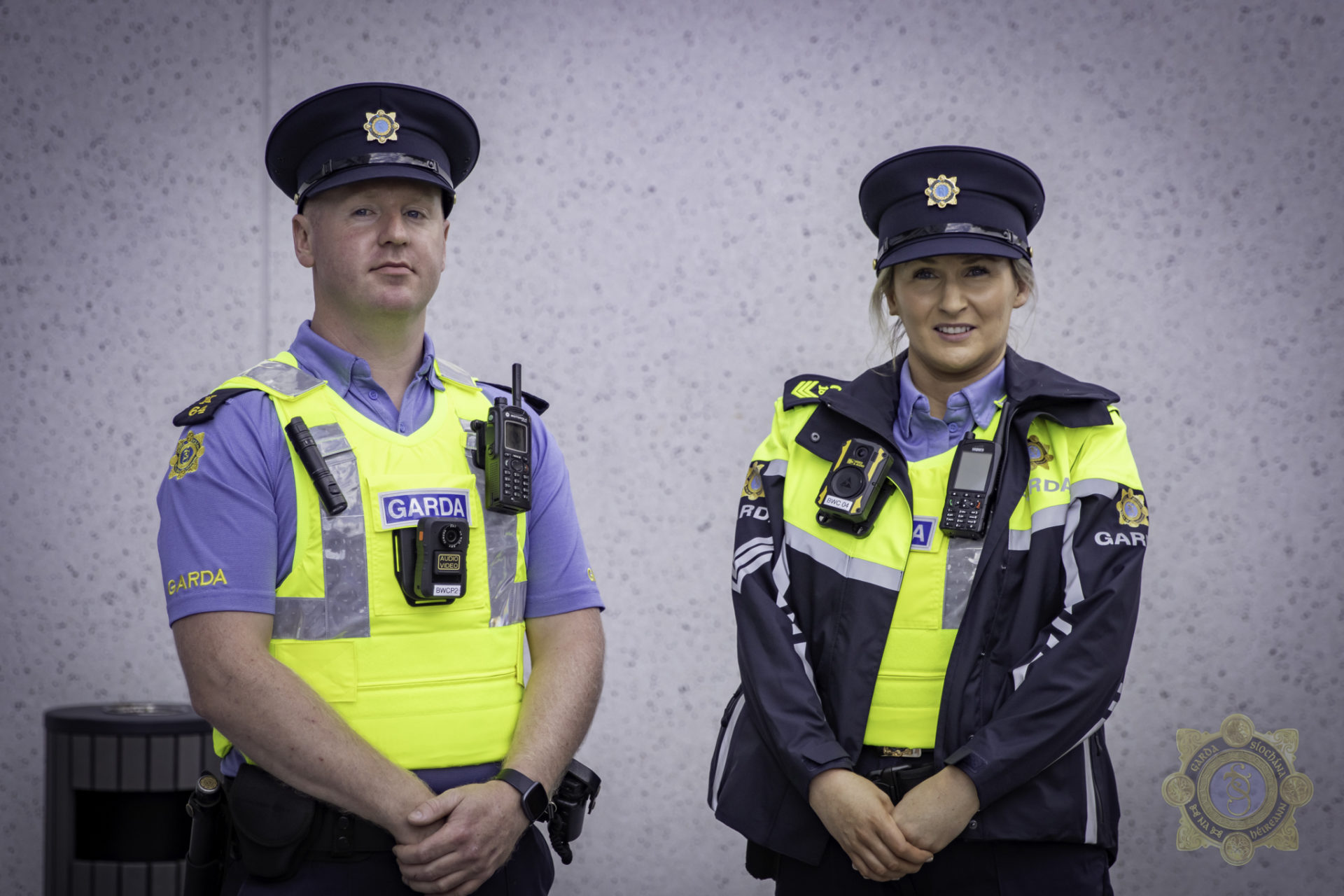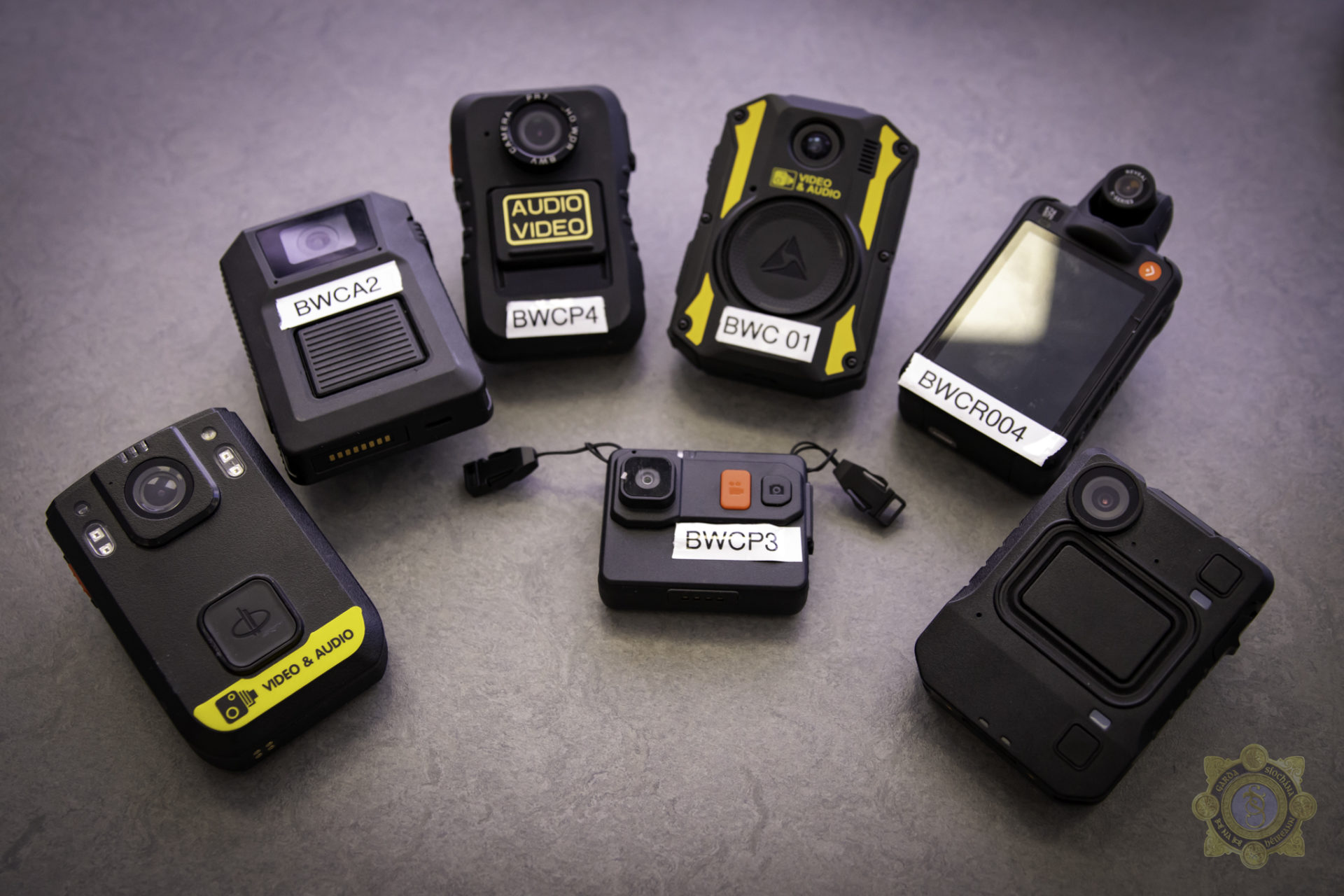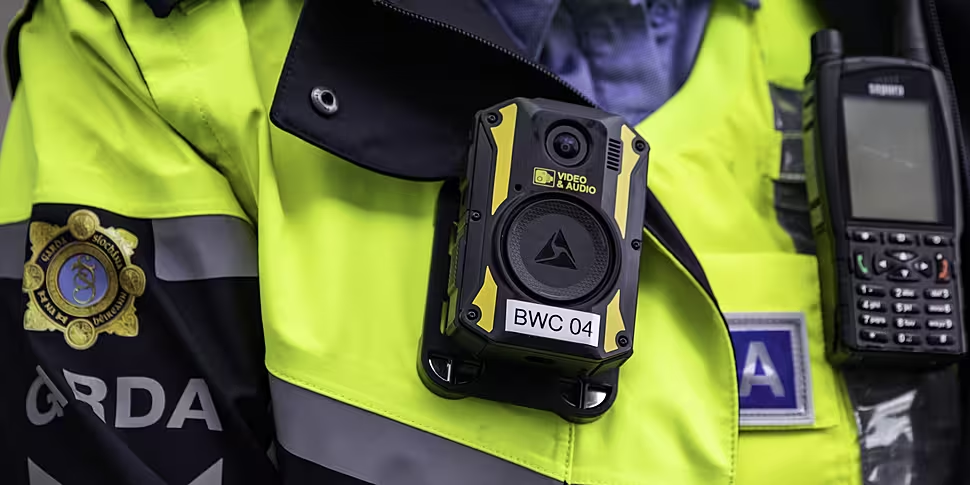The approach being taken on the rollout of Garda body cameras is 'cautious, sensible and prudent', head of the Irish Council for Civil Liberties (ICCL) has said.
Gardaí have said their body-worn cameras will not be permanently recording and that they will only be activated when an incident takes place.
At an event in Dublin earlier on Tuesday, Gardaí unveiled their plans as the legislation allowing for the new equipment to be used in Ireland is being considered in the Seanad.
The cameras will be attached to the chest of Gardaí on patrol, and they will be activated by the user only when in contact with members of the public during specific times.
 Garda officers wearing Body Worn Cameras. Image: An Garda Síochána
Garda officers wearing Body Worn Cameras. Image: An Garda SíochánaAny recordings can be used as evidence in court, although anything that is not needed will be deleted.
Tuesday marked the beginning of a public procurement process for the cameras.
ICCL Executive Director Liam Herrick told The Hard Shoulder the results from body cams have not been seen elsewhere.
"If they delivered what everybody says that they hope they'll deliver - which is that they'll reduce assaults against the Guards, that they will improve Garda behavior towards the public and they'll assist in the detection of crime - if it delivered on that everybody would be in favour of it," he said.
"Our perspective is that when you look at the large research that's available from the United States... we haven't seen the benefits.
"Over time you don't see the reduction in assaults on police, for example, that you might have hoped for.
"If you don't see the benefits... then the case might not be made."
'Caution and prudence'
Mr Herrick said he believes the approach being taken here makes sense.
"The announcement today is positive because it shows that there's a caution and there's a prudence being taken," he said.
"There's a clear commitment now to a pilot project at three locations around the country where we'll see if we do get those benefits in practice and also if the safeguards work properly."
 Body Worn Cameras. Image: An Garda Síochána
Body Worn Cameras. Image: An Garda SíochánaMr Herrick said the pilot project should define the circumstances when the cameras would be used.
"The other key message from today was that there was a commitment that this will not be blanket surveillance with Guards filming people all the time," he said
"We will define the circumstances in which the technology should be used.
"The detail will have to be worked out in the Oireachtas on that, but I think that's also a positive indication.
"The one positive, fundamental of Irish policing is a good relationship between the public and the community police that serve them; we don't want technology to be a barrier between that.
"I think there's a cautious approach here, it's sensible, the devil will be in the detail but I think this is a prudent way to approach this question," he added.
Listen back here:









